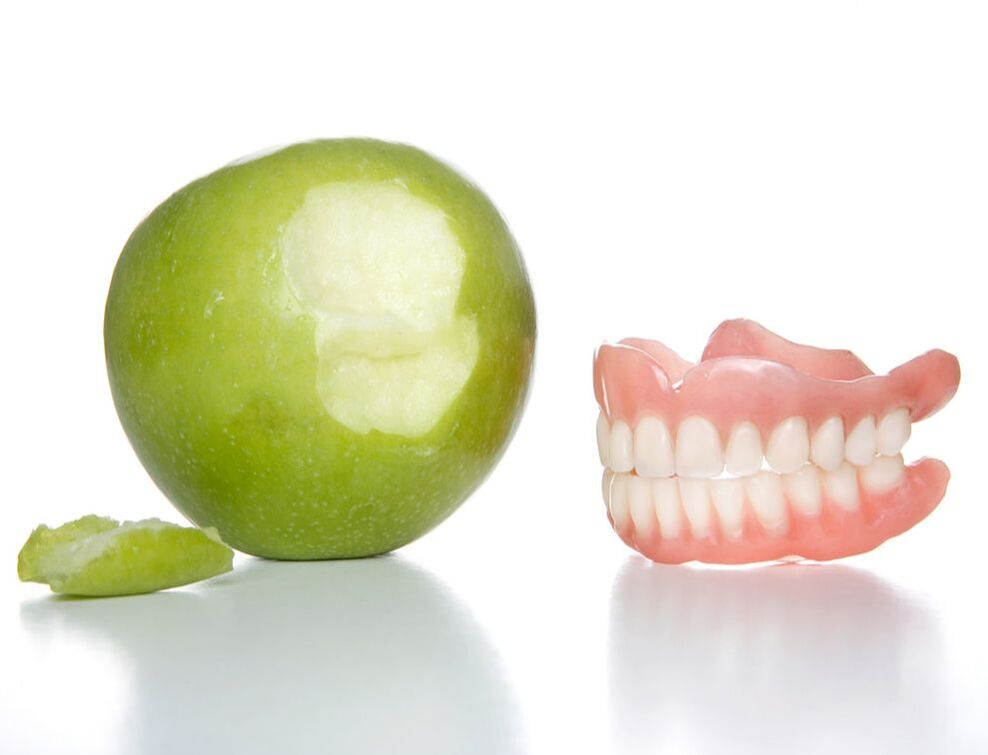EATING...
|
The most difficult part of becoming comfortable with new dentures, is getting used to eating with them. Be patient, start slowly and don't get discouraged if you have trouble at first; natural teeth are firmly fixed in bone, while artificial ones only rest on the bone. When chewing on one side, you may notice a tendency for the dentures to tip and loosen on the opposite side. Attempt to chew food on both sides with the teeth. This will help prevent dentures from tipping. If you are patient and take the necessary time to practice you’ll learn to control the dentures automatically by using the muscles of mastication in your mouth. All the muscles must learn what they should and should not do.
|
With some new dentures, it may have been necessary to increase the height of your upper and lower teeth in order to have them contact sooner. This may have been done through the use of an appliance called an occlusal splint. With a change such as this, you will have to develop new chewing habits simply because you will be chewing your food at a different position than that of your old dentures. Begin with eating food that does not require aggressive chewing. Also, take smaller mouthfuls and chew slowly and evenly. At first, don't bite off food with your front teeth; you will learn to do that later. Cut the food into smaller pieces that can easily be put into your mouth. As you become more skilled at using your dentures, you will be able to try harder and tougher foods. Eventually, you’ll be able to use your front teeth for biting.
Remember, with your natural teeth, you bit and pulled, but with dentures you bite and push. You may also have difficulty with very thin foods such as lettuce and the skins of apples or tomatoes. You will find apples easier to eat if you peel them and cut them into slices or quarters.
Remember, with your natural teeth, you bit and pulled, but with dentures you bite and push. You may also have difficulty with very thin foods such as lettuce and the skins of apples or tomatoes. You will find apples easier to eat if you peel them and cut them into slices or quarters.
TASTING...
Often your sense of taste is affected when you first start wearing your new dentures. People sometimes think that this is caused by the palate being covered by the dentures, but that isn't the case, your taste buds are only present on your tongue, not in your palate.
|
There are two reasons why food seems to lose some of its taste:
|
As you become more accustomed to your dentures, your brain pays less attention to these messages and more to the messages from the taste buds. When this happens, food regains its tastes.



